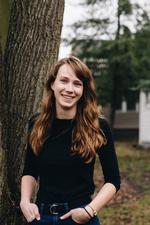Our Mother’s Gardens: Writing about Flowers at a Time Like This
People of color, while often left out or silenced from environmental movements, have a rich history of ecological activism and connection to creation. This is accompanied by a rich history of literature, broadly defined in order to include spoken and sung words, about loving and living with the earth. Perhaps art will not save us, but it does provide a window into alternative ways of knowing and uncovers otherwise submerged perspectives, offering hope and new pathways toward action. By returning to submerged perspectives, hope can be found in the midst of environmental crisis. In her essay, Jenna Van Donselaar begins by outlining the status of things; that is, the current state of our present ecological crisis and the danger this poses to our bodies and the danger posed particularly to marginalized bodies. This moves into her second point: that uncovering the submerged ecoliterary tradition of people of color reorients the dominant colonial narrative and opens up reality to the experiences of those whose bodies are the collateral damage of extractive capitalism. Finally, she enters into a discussion of what is known as the ecowomanist tradition, as articulated by Melanie Harris. She argues, overall, that while the ecoliterary tradition of women, particularly women of color, has not been centered in the environmental movement, it is this tradition that provides a vision for constructing a more just, sustainable future. Writing about flowers is precisely what ought to be done at a time like this, and returning to the earth can allow us to reimagine hope for a just future.
